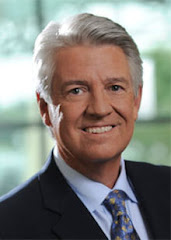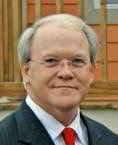In June 2002, clinical psychologist Mary Gail Frawley-O’Dea was invited to speak before the United States Conference of Catholic Bishops as they considered how to address the problem of clergy sex abuse. These are her words as she attempted to provide them with some understanding of the experience of sexual trauma through the lens of the victim.“Sexual abuse victims often are young people for whom something or someone is missing. They yearn for an adult who sees them, hears them, understands them, makes time for them, and enjoys their company. Unfortunately, the sexual predator is exquisitely attuned to the emotional and relational needs of the potential victims…. Sexual abusers ingratiate themselves into the lives of their victims, evoking respect, trust and dependency long before the first touch takes place. The confused child or adolescent is frequently so emotionally entwined with his victimizer… that he readily and silently complies with the sexual activities imposed upon him.
There are those who devalue survivors of childhood and, especially adolescent sexual abuse for not disclosing their victimizations when they were occurring. Secrecy, however, is the acknowledged cornerstone of sexual abuse… Sexual abusers may also blame the victim, accusing her of seducing the predator, thus filling the victim with the shame and self-loathing more appropriately experienced by the victimizer. In a more covert covenant of secrecy, the abuser provides the victim with gifts and special privileges that both silence and instill terrible and long-lasting guilt.
In addition many abused minors maintain silence because they accurately perceive that there is no one in their environment who will help them if they disclose…. Finally, children and teenagers do not disclose the sexual abuse secret because they care for the perpetrator. A central cruelty of sexual abuse, in fact, is the perpetrator's trampling of the young person's generously and freely bestowed affection or respect.
It is from this epicenter of betrayed trust that the mind splitting impact of sexual abuse ripples outward…. It is simply too much and the resulting fracture of the victim's mind and experience often leads to a debilitating post-traumatic stress disorder that affects every domain of the victim's functioning and lasts for years and years after the abuse has stopped.
Let me now guide you on a tour through the corridors of a psyche twisted by sexual transgression. It is a trip through a traumatogenically constructed, psychological House of Horrors in which experiences of self and other are grotesquely distorted and terrifying images unexpectedly pop out from seemingly safe places. The visitor lurches from one emotional shock to another in an interior atmosphere of darkness….
When a young person is being abused, the psychological shock is so great that the normal self cannot absorb or make sense of what is happening to it. In a valiant attempt to cope with the overwhelming overstimulation and sense of betrayal literally embodied in sexual trauma, the self splits using the psychic mechanism of dissociation. The normal operation of dissociation allows, for example, each of us to drive ten miles and then "come to" with no memory of the time just past. For the victim of child or adolescent sexual violation, however, dissociation is an exponentially more dramatic process, one that serves as both a blessing and a curse.
On the one hand, by entering into an entirely different state of consciousness while being abused, the victim preserves a functional and safe self who is removed from the trauma and is therefore able to learn, grow, play, and work…. On the other hand, the curse of dissociation condemns the state of self who experienced the abuse to a trapped existence in the inner world of the survivor, a place dominated by terror, impotent but seething rage, and grief for which there literally are no words.
Because trauma impels the brain to process events quickly and in a state of hyperarousal, verbalizing pathways are bypassed. Instead, the sexual violations are encoded by the child and retrieved by the survivor as non-verbal, often highly disorganizing feelings, somatic states, anxieties, recurring nightmares, flashbacks, and sometimes dangerous behaviors.
Often, the adult survivor's life is wracked by unexpected regressions to his victimized self that are triggered by seemingly neutral stimuli. Much as the Vietnam Vet who hits the floor during a thunderstorm… so too the sexual abuse survivor may be triggered into a regression by something or someone reminiscent of his earlier traumas. No longer firmly located in the present, the survivor thinks, feels, experiences his body, and behaves as the victim he once was, badly confusing himself and those around him....
Coexisting with the violated, terrorized, grief stricken victim self, the adult survivor of sexual abuse has within her a state of being that is identified with the perpetrator. Through this unconscious ongoing bond to the predator, the survivor preserves an attachment to the abuser….
There comes a day in every survivor's recovery upon which he fully comprehends what was so cruelly taken from him. Further personal growth and healing requires that the survivor then mourn the childhood or adolescence that never was, the defensively idealized caretakers who never existed, and perhaps most poignantly, the self that could have been had trust, hope, and possibility not been so brutally shattered.
I cannot exaggerate nor can I adequately convey the soul searing pain of this phase of recovery….
Quite understandably, the sexual abuse survivor may act to avoid the ultimate mourning necessary to move on from the abuse and all that was stolen from him. Launching a lawsuit against the perpetrator or against those who abetted the abuser may be one strategy employed to deny unrecoverable loss, while instead pursuing an illusion of full restitution of that which, tragically, never can be restored. No matter the amount of the ensuing financial settlement, a residue of emptiness and lost hope persists. At the core of the survivor's being, the worst has happened yet again; he has been paid off to go away while life goes on relatively untouched for the perpetrator and those who shielded him.
Now let me be absolutely clear. Money can be a little better than nothing…. Many survivors, in fact, resort to lawsuits only after being stonewalled in their quest for more personal reparative gestures. Legal action, in this situation, represents a last ditch effort by the survivor to become an agent in his own life. Further, a lawsuit, when all else has failed, puts into action an understandable demand that the truth be told one way or another. In addition, many survivors need financial assistance for therapy, substance abuse rehabilitation, and educational or vocational training previously unattainable because of post-traumatic stress symptoms plaguing the victims. But money is not nearly enough, no matter how much it is….
Leaving the realm of sexual abuse survivor's organization of self, we enter a related corridor on our tour, one in which we explore typical characteristics of the victim's interpersonal relationships.
A survivor's relationships with other people are hued and shaded by expectations and anxieties forged during their traumatic experiences. Approaching others from within the psychological confines of post-traumatic stress disorder, the trauma survivor exhibits rapidly shifting relational stances, painfully lurching from periods of extremely dependent clinging, to those marked by vicious rage aimed at the same person. Stark terror and tears can switch in an instant to cold aloofness, while warmth and vivacity may turn kaleidoscopically to paranoid suspicion. All this, of course, leads to many chaotically unstable relationships, often alternating with stretches of the loneliest isolation.
Perhaps needless to say, normal sexual functioning is almost impossible for most survivors until well into their recovery. Too often, sex, even with a trusted other, triggers terrifyingly disorganizing flashbacks during which survivors sometimes literally see the face of their abuser superimposed on the visage of their sexual partner and experience dreadful relivings of their sexual traumas. In addition, survivors frequently are disgusted by and ashamed of their own bodies and sexual strivings. Unreasonably blaming the abuse on their own sexuality, they often desperately insist that it never would have happened were it not for their self-perceived horribly seductive bodies and deplorable sexual desires…. Sexual abuse survivors of all genders and sexual orientations are deprived of the right to grow gradually into a mature sexuality and, instead, are forced or seduced into premature sexual encounters they are emotionally ill-equipped to handle. As adults, therefore, these men and women often spin between periods of promiscuous and self-destructive sexual acting out and times of complete sexual shutdown during which, like burn victims, they experience the gentlest physical contact as excruciatingly painful.
Finally, there is a characteristic relational stance assumed by many sexual abuse survivors that is particularly germane to these proceedings. It involves others who did not abuse them but also did not protect them.
If it takes a community to raise a child, it also takes a community to abuse one so that whenever a minor is sexually violated, someone's eyes are closed. Throughout history and in every segment of society, the most common response to the suspicion or even the disclosure of childhood sexual abuse has been self-defensive denial and dissociation. No one finds it easy to stand in the overwhelming and destabilizing reality of sexual abuse. Thus, blindness, deafness, and elective mutism are responses endemic to many confronted by a victimized child, an adult survivor, or a perpetrating adult. To the extent, however, that the sexual victimization of a minor depends upon the silence of adults who knew, suspected, or should have known about the abuse, the burdens of shame and reparation reach beyond the perpetrator…. Zero tolerance must include the silent as well as the predatory.
What is important to recognize…is that adult survivors of sexual abuse frequently are, at least initially, even angrier with adults who failed to protect them than they are with the perpetrator himself….
Now turning down another corridor on our tour of a psyche ravaged by early sexual trauma, we examine the impact of sexual abuse on the cognitive functioning of the victim and survivor. Part of what is overwhelmed during sexual abuse is the young person's ability cognitively to contain, process, and put into words the enormity of the relational betrayal and physical impingement with which he is faced. It is striking and often bewildering to observe in adult survivors completely contradictory thought processes that ebb and flow with little predictability. One moment, you are speaking with an intelligent adult, capable of complex, flexible, abstract, and self-decentered thinking. Under sufficient internal or external stress, however, or in situations somehow reminiscent of past abuse, the cognitive integrity of the survivor shatters and becomes locked in rigidly inflexible, self-centered thought patterns, simplistic black and white opinions devoid of nuance and an immutable conviction that the future is destined to be both short and unalterably empty….
If a survivor's cognitive functioning is severely ruptured by sexual abuse, his affective life, the next stop on our tour, is even more impaired. When a young person is sexually traumatized, the hyperarousal of the autonomic nervous system and the body's subsequent attempt to restore order disrupt the brain's neurochemical regulation of emotion. In addition, we are now learning that attachment relationships also impact upon the brain's ability to modulate feelings, with traumatic attachment experiences interfering with effective neuropsychological regulation of affect. The brain of the sexually abused minor thus suffers a double assault. Both the sexual traumas themselves and the betrayal of an attachment relationship assail the flow of affect modulating neurochemicals.
As an adult, the survivor shifts--sometimes quite rapidly--between states of chaotically intense hyperarousal and deadened states of psychic numbing. This inability to modulate emotional arousal often leads to interpersonally inappropriate verbal or motoric actions when the survivor is hyperstimulated, and to similarly inappropriate emotional and psychomotor constriction as the individual moves into psychic numbing. Further, autonomic arousal becomes a generalized reaction to stress in the midst of which the sexual abuse survivor is unable to discern realistically the severity of a perceived threat. Instead of reacting at the actual level of psychological danger, the survivor may engage in seemingly irrational behaviors like temper tantrums or terrified withdrawal. These behaviors do not fit the present day situation but are perfectly complimentary to the now affectively revived earlier trauma.
Because of the damage done by sexual abuse to affective brain functioning, adult survivors often need psychotropic medications for periods of time during recovery. For some, their impairments are sufficiently intractable to require lifelong medication….
We now are almost finished with our psychological tour and are about to enter what can be the most shocking corridor of all. Also partly due to disrupted brain functioning, sexual abuse survivors often display a truly spectacular array of self-destructive behaviors. They slice their arms, thighs, and genitalia with knives, razors, or shards of broken glass. They burn themselves with cigarettes, pull hair from their heads and pubic areas, walk through dark parks alone at night, play chicken with trains at railroad crossings, pick up strangers in bars to have unprotected and anonymous sex, drive recklessly at high speeds, gamble compulsively, and/or further destroy their minds and bodies with alcohol and the whole range of street drugs. Both male and female prostitutes tend to have backgrounds of early sexual abuse. Survivors also are two to three times more likely than adults without abuse histories to make at least one suicide attempt in their lives. Sometimes they die.
Survivor self-abuse performs a myriad of functions… A quick inventory of a survivor's motivations to act self-destructively includes: punishment for the abuse he blames himself for; mastering victimization by taking charge of the timing and execution of harm; self-medication of turbulent affective storms; and unconsciously seeking states of hyperarousal that then trigger the release of brain opiods, providing the survivor with a temporary sense of calm….
As we exit now from our tour of the terrifyingly disorienting psychological House of Horrors, constructed amidst sexual abuse, and maintained by its aftermath, it should be clear that a survivor's recovery is a long, complicated, sometimes treacherous process….
Psychoanalyst Leonard Shengold entitled his book on the effects of childhood sexual abuse,
Soul Murder. I do not think that early sexual trauma necessarily has to result in soul murder but it most surely batters and deadens the soul of the young victim and the adult survivor. That this ravaging of souls has been administered by clergy entrusted with a sacred covenant to protect and enliven souls is despicable; it is evil itself.”

































